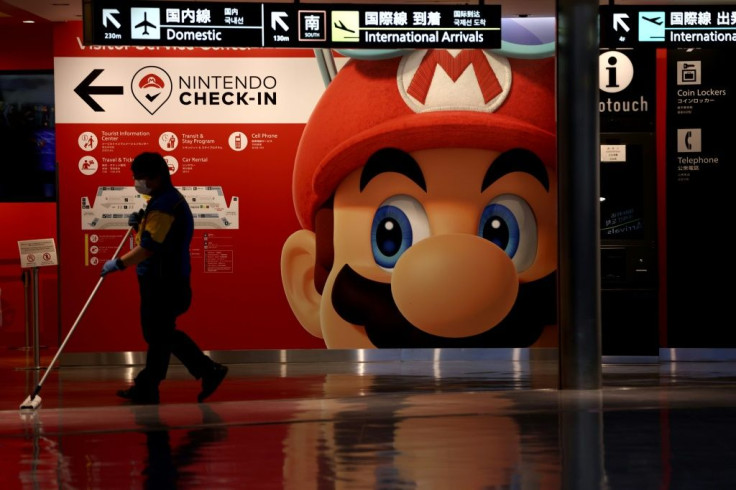Nintendo Q1 Profit Down As Pandemic Gaming Boom Slows
Nintendo's first-quarter net profit fell nearly 13 percent as the video-game lockdown boom lost momentum, the Japanese firm said Thursday, after reporting record earnings in the previous financial year.
Long periods of stay-at-home orders and other restrictions during the Covid-19 pandemic fuelled a run of good fortune for game-makers worldwide.
But analysts warn of a slowdown in demand for indoor entertainment as vaccines help life move towards normality, despite the spread of the Delta variant.
Nintendo said it generated 92.7 billion yen ($846 million) for the three months to June, compared with 106.5 billion yen in the same period last year.
It left its forecast for the year to March 2022 unchanged, still expecting to report a 340 billion yen net profit on sales of 1.6 trillion yen.
The firm posted its highest ever annual profit in 2020-21, propelled by the runaway popularity of its Switch console and the family-friendly game "Animal Crossing".
"Hardware and software sales in the first quarter of last fiscal year were substantially driven by the March 2020 release of 'Animal Crossing: New Horizons'," Nintendo said in a statement on Thursday.
"So compared to then, hardware sales were down 21.7 percent and software sales were down 10.2 percent year-on-year."

Last month, Nintendo announced it would release a new model of the Switch in October -- but analysts are divided over prospects for the Switch OLED, with the recommended price higher than that of the original console.
"The results were weaker than expected, partially due to sluggish sales of Switch Lite consoles," Hideki Yasuda, an analyst at Ace Research Institute in Tokyo, told AFP.
"The lockdown boom is slowing, but its performance remained competitive," he said. "Nintendo still has a good chance to upgrade its full-year forecast later this year."
The Switch, which can be handheld or used with a TV, was released in 2017, while the handheld-only Switch Lite model came out in 2019.
Nintendo's new console sales have previously tended to peak in the third year, and then taper off.
Yasuda warned that the global chip shortage, driven by a surge in demand for electronic devices during the pandemic, could also pose a risk for Nintendo.
"The extended impact of both Covid-19 and the global semiconductor shortage creates a state of continued uncertainty, with the possibility of future impact on production and shipping," the gaming giant said.
Serkan Toto, a games industry consultant at Tokyo-based Kantan Games, said the Switch was "now in the middle of its lifecycle", but was optimistic for its future.
"At the end of the fiscal year they will have three big Pokemon releases. So Nintendo seems to be in a much better shape in terms of first-party content, and that's going to drive hardware sales," he said before the earnings release.
© Copyright AFP {{Year}}. All rights reserved.





















